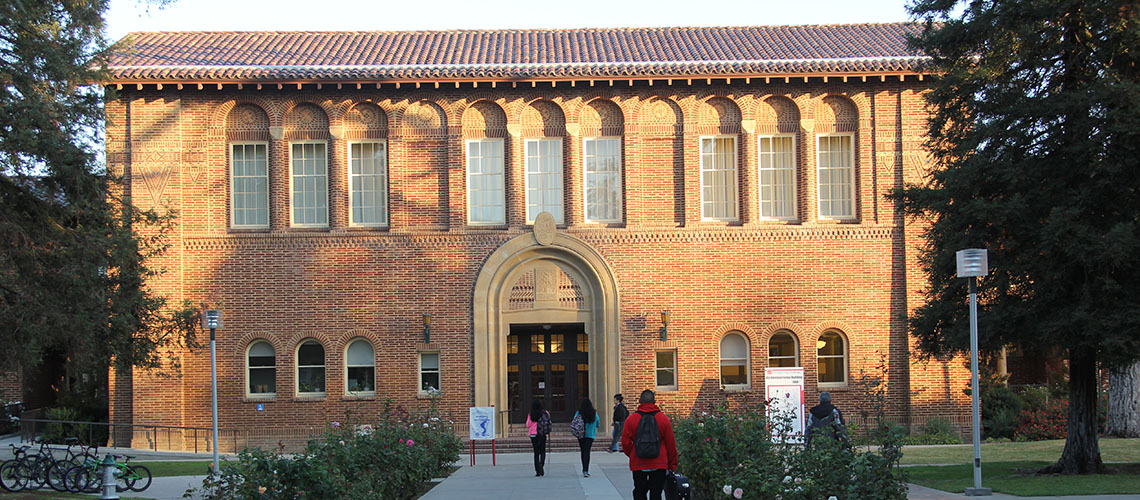California Education Code §48800 provides that the governing board of a school district may determine which students may benefit from advanced scholastic or vocational work. The governing board may authorize those students, upon recommendation from their principal and with parental consent, to attend a community college as a special part-time student and to enroll in one or more courses offered at the community college level. The purpose of the code is to provide educational enrichment for a limited number of eligible pupils. The educational enrichment opportunity will typically result in a request for concurrent enrollment in courses not currently offered by the approving school.
Applying and registering for dual enrollment pathways is a two-step process students should work closely with their high school counselors to complete:
Step One: Online Application. All first-time dual enrollment students must apply online at CCCApply. Any previously dual enrolled student who has skipped more than two consecutive semesters must apply online again at CCCApply. The application typically takes between 20-60 minutes to complete, and it can take between 48-72 hours for a SCCCD ID number to be generated. The students’ SCCCD ID numbers are required on the registration packet, the next step.
Timelines:
- For classes that begin in the spring semester (January-May), the date that the online dual enrollment application will open is mid-September (the second Monday).
- For classes that begin in the summer (May-August) or fall semester (August-December), the date that the online dual enrollment application will open is April 1.
Step Two: AB 30 Form. A completed AB 30 form is required for all dual enrollment students before they wish to enroll into dual enrollment pathway courses. This form is available from the high school counselors. This form requires signatures from the high school counselor as well as the student and a parent or guardian. If the high school student will be 18 before the start of the semester, a parent signature is not required.
The completed packet should be returned to the high school counselor who will review it for accuracy including SCCCD ID#. Once it is reviewed, the high school counselor will then forward it to the Early College Office at FCC. Incomplete or inaccurate AB 30 forms will be returned to the high school counselor, and they will not be processed until the errors are corrected and the form is returned to the college. After the one-time form is coded, the students will be registered into their pathway classes; this form only needs to be submitted once during the students’ high school dual enrollment journey
To ensure timely registration, it is important for the high school partners to ensure that the AB 30 forms are completed with accurate information before they are submitted to the Early College Office.
For more information including application links and step-by-step instructions regarding the online application process, please see the FCC Dual Enrollment webpage.
After registering for a class, students considering dropping out of a class should talk with their high school counselors. The high school counselor will confer with the student’s parents, class facilitator, and instructor of record to discuss the decision. If the decision is made to drop the student, the Office of Early College needs to be informed to process the drop with Admissions and Records. Dual enrollment students are not able to drop themselves in Self-Service.
Note on timelines:
- If a drop takes place before Census day (typically the end of week 3 of a regular 18-week semester), then the course will not appear on the student’s transcript.
- If a student drops after Census day but before the final drop date (typically at the end of week 9 of a regular 18-week semester), then a “W” (withdrawal) will appear on the student’s transcript. A “W” will not affect a student’s college grade point average; however, it can affect a student’s SAP (Student Academic Progress) which can, in turn, affect the student’s ability to receive financial aid when entering college after high school.
- A student cannot be dropped from a course after the final drop date (typically at the end of week 9 of a regular 18-week semester).
- Students can find exact census dates and final drop dates for their own classes in the instructor’s syllabus and in Self-Service in MyPortal.
If students have extenuating circumstances that require dropping from a class due to serious medical reasons, or a reason deemed by the college to be out of the student’s control, they can petition for an “EW” (Excused Withdrawal) by completing the form Petition to Withdraw Under Extenuating Circumstances along with the required documentation as specified on the form. If approved, this allows students to withdraw without consequences to their academic records.







